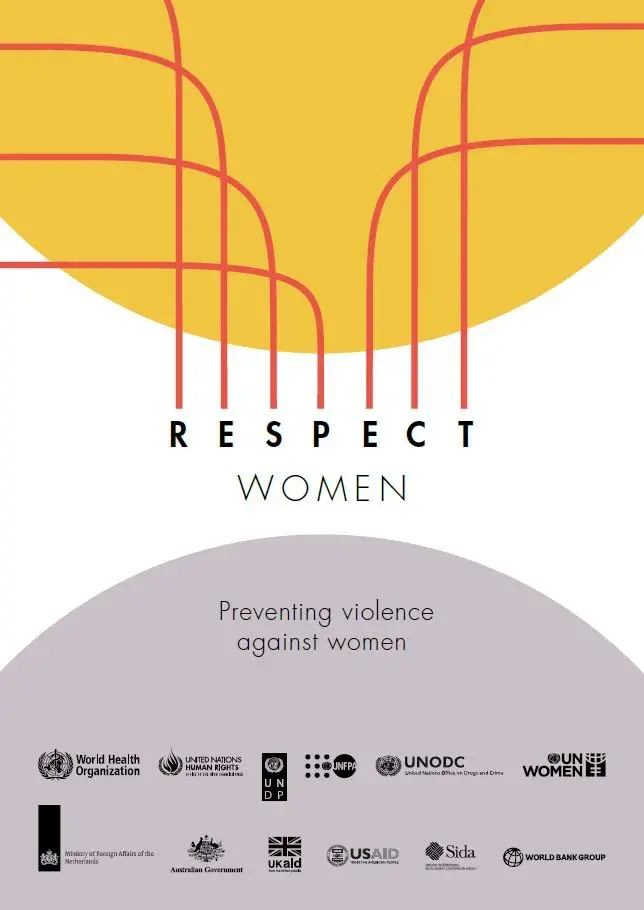Violence against women and girls remains pervasive across the world, despite significant efforts being made to recognize, eliminate, and prevent it in all its forms. Eliminating violence against women and girls is pivotal to achieving gender equality, women’s empowerment, and the Sustainable Development Goals. Elimination can only be done through prevention. Successful prevention requires political commitment and leadership, implementing laws and policies that promote gender equality, investing in women’s organizations, allocating resources to prevention, and addressing the multiple forms of discrimination women face daily.
Based on the principles of respect and equality, and lessons learned from evidence-based results on what works in preventing violence from occurring and recurring, the World Health Organization (WHO) and UN Women, in collaboration with ten other UN, bilateral, and multilateral agencies, have developed “RESPECT Women: Preventing violence against women”. This publication provides a comprehensive framework to inform policy makers and implementers about designing, planning, implementing, monitoring, and evaluating interventions and programmes on preventing and responding to violence against women.
The framework outlines seven inter-related intervention strategies derived from the word “respect”:
Relationships skills strengthened
Empowerment of women
Services ensured
Poverty reduced
Environments made safe
Child and adolescent abuse prevented
Transformed attitudes, beliefs and norms
Underpinning the publication’s methodology is the realization that ending violence against women begins with RESPECT and a collective commitment to act today.


